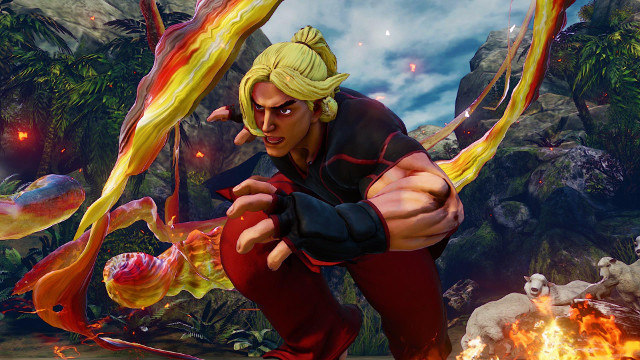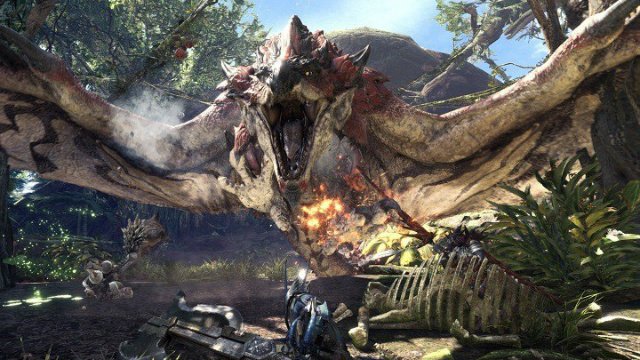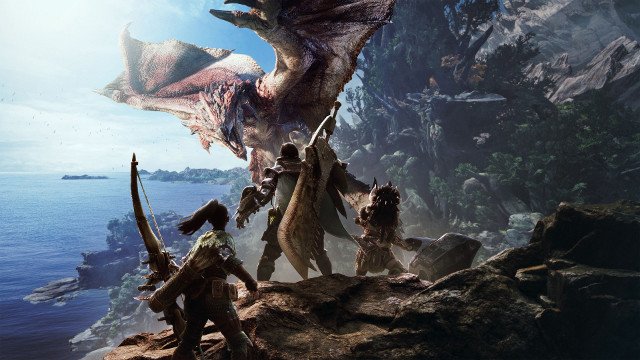Rough patches are par for the course for most big video game publishers. Capcom, throughout the latter half of the last generation and most of the current one, was one of those struggling publishers. Misguided reboots, unfinished games, and constant re-releases pissed off fans and signaled an out-of-touch publisher hell-bent on running itself into the ground. Over the past year, however, Capcom has woken up. By addressing its flaws and listening to fans, the publisher has earned back some the goodwill it had built up and is on the way to a healthier, more sustainable future.
Capcom began to veer off course in early 2012. Street Fighter X Tekken’s on-disc DLC, unbalanced gem system, multiple console-exclusive fighters, and lackluster post-launch support reflected poorly on the company but Resident Evil: Raccoon City and Resident Evil 6 more accurately symbolized its imminent decline. Both were braindead, bastardized action games bearing the Resident Evil name in title only and not through their gameplay, atmosphere, or presentation. Harsh reviews damned each and displayed how lost Capcom was at evolving its most iconic franchise.
This confusion carried on into 2013 with Devil May Cry and Lost Planet, even though Capcom contracted the new entries out to external developers. Ninja Theory’s DmC Devil May Cry reviewed well and was a creative interpretation of the source material, but dismayed DMC diehards weren’t swayed by critical reception, which sank the game once in 2013 and again in 2015 with its Definitive Edition. Spark Unlimited’s Lost Planet 3, on the other hand, was not even critically beloved and was a flash in the pan failure on all fronts. And while Dead Rising 3 and Resident Evil: Revelations 2 were modest critical and commercial successes in late 2014 and early 2015, 2016’s Dead Rising 4 and Umbrella Corps underperformed and were both misguided entries that ostracized their respective franchises. Capcom Vancouver is still reeling from Dead Rising 4’s mediocrity, as it recently had to lay off a bunch of its staff, cancel its unannounced game, and scale back its current Dead Rising project.

All of these misfires slowly paved the way for the greatest display of Capcom’s incompetence: Street Fighter 5. While sold at full price, Street Fighter V was essentially a beta: incomplete and with a lack of polish and content that would make an Early Access title on Steam blush. Street Fighter 5’s stench of haste lingered for weeks as players grew increasingly frustrated with the rampant rage-quitting, input lag, faulty network play, and expensive DLC. This would be embarrassing for a new franchise, let alone one of the most influential and important series in all of gaming.
Unless Capcom was planning to put out a drawing tablet, they only had room to improve. And they did. If Resident Evil 6 was the canary in the coal mine for the upcoming rough times at Capcom then, in a poetic way, Resident Evil 7 indicated the publisher’s rebound. It was what the franchise needed as it cleverly integrated inspiration from other contemporary horror games while keeping enough of its Resident Evil DNA intact. Resident Evil 7 was restrained and creatively focused, which also spoke to how Capcom was probably forced to approach it. It didn’t try to appeal to the lowest common denominator by throwing in co-op or enough explosions to pass for a Transformers movie. Instead, it was evident that Capcom listened to the core Resident Evil fans and gave a team of creative people enough room to execute their vision.

Capcom seems to be going down a similar route with Mega Man 11, judging by the developer’s words near the game’s announcement in late 2017. The internal team at Capcom has been given a “relatively blank check to do whatever they want with this Mega Man game,” according to Game Informer. That money, according to game director and 26-year Capcom veteran Koji Oda, seems to be going towards realizing what fans want while modernizing what a Mega Man game is. “At the end of the day, we asked ourselves, ‘What does Capcom need to do for its fans?’ ” Oda reiterated to Game Informer multiple times in their cover story reveal. While the game is not out yet and could still pull a Mighty No. 9, having a team aware of the balancing act inherent to reinventing an old series with full backing from Capcom bodes well for Mega Man 11.
Street Fighter 5: Arcade Edition followed a month after Mega Man 11’s announcement. Boasting a larger roster, Arcade Mode, Extra Battle Mode, and more, you know, actual content, Street Fighter 5 finally went gold with its Arcade Edition update. These inclusions, along with the incremental updates it has gotten since launch, finally added some meat to the skeleton that released in February 2016. Reviews are up over the original, and while we have to wait to see the long-term effects of the update, its tweaks and additions look like a worthy apology and shows that Capcom is listening.

Capcom also listened to sane people by putting Monster Hunter World back on consoles. Monster Hunter has always raked it in for Capcom but its near-exclusive dedication to handhelds kept it from reaching a larger audience. Hunkering over a tiny piece of plastic while slowly contracting carpal tunnel isn’t the most inviting, especially for a series that already isn’t friendly to newcomers. Jumping onto more powerful consoles (and PC somewhere down the line) added more complex enemy behaviors and better visuals but also wore away some of the technical barriers that repelled some potential fans. Monster Hunter World still is a true Monster Hunter game but without the bullshit that kept people away from it. The game’s strong sales and glowing reviews prove that expanding the series to new people can work to everyone’s benefit as long as you maintain the spirit that people fell in love with.
Capcom is notorious for re-releasing and remastering its entire catalog; just count the number of times Resident Evil 4 has come out (and how many times you’ve probably bought it). It’s a consistent strategy they’ve used no matter how well they are doing overall. Even though re-releases are a good, dependable source of income, I’d like to think that revisiting those games also helped Capcom realize why it can sell those classics multiple times. Whether it is the Resident Evil Remake or the original Mega Man games, the publisher has persisted throughout the years due to its purity. They still feel like creative works of art that know what players want without sacrificing their creator’s vision or being trampled by predatory publisher behavior. Failing to understand this is why Capcom started hemorrhaging fans and why EA is currently purging what little goodwill it has left. EA stands to learn how Capcom recaptured some of its old spirit by giving people what they want in new and creative ways without gouging them in the process.







